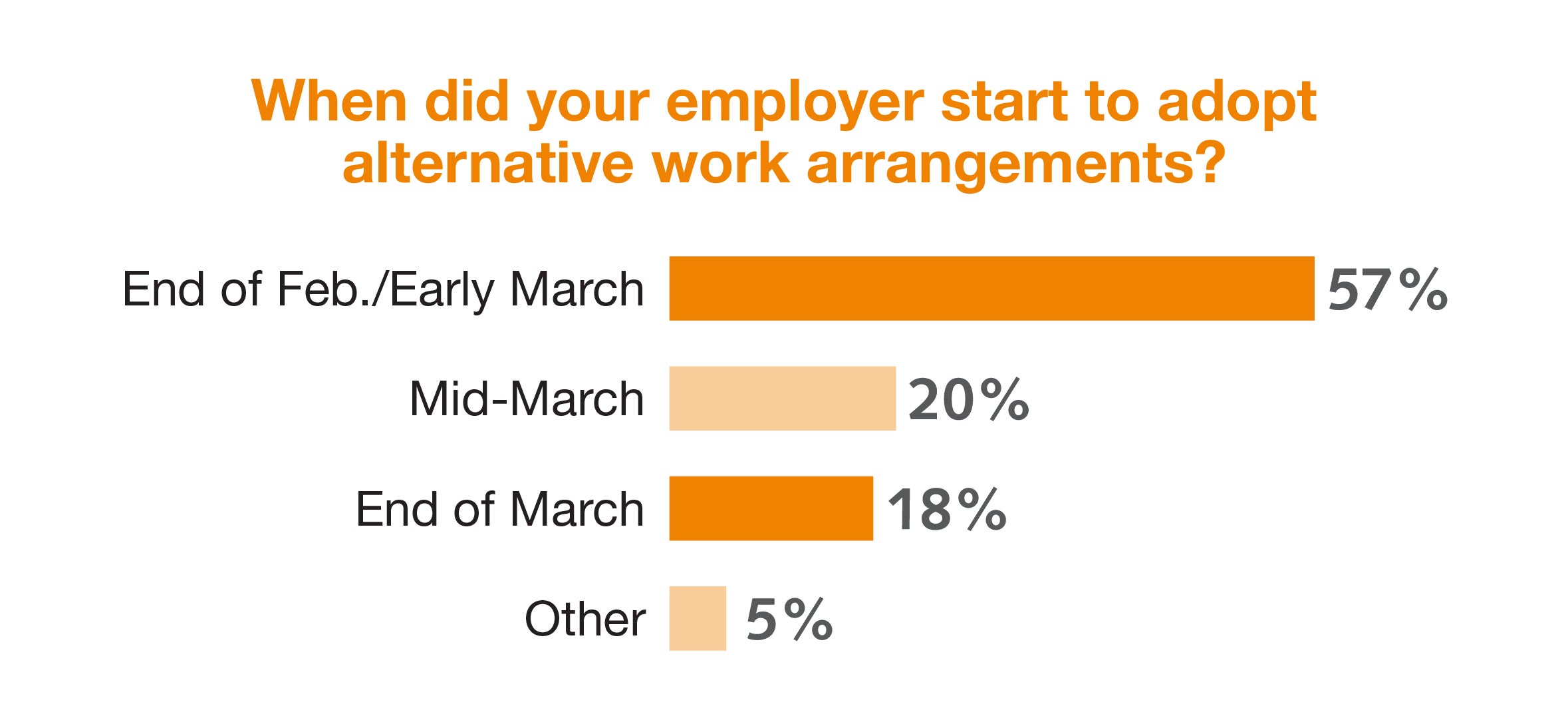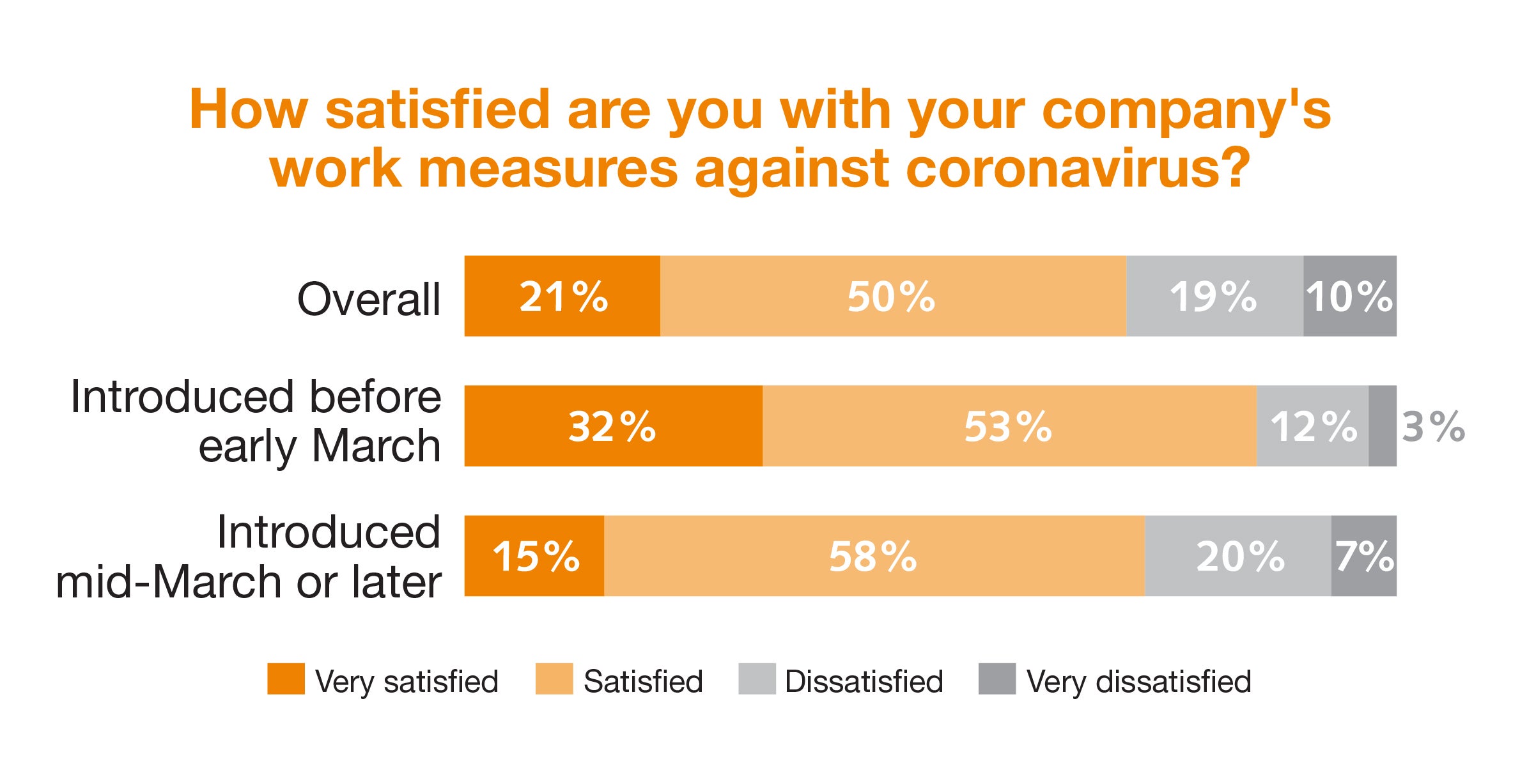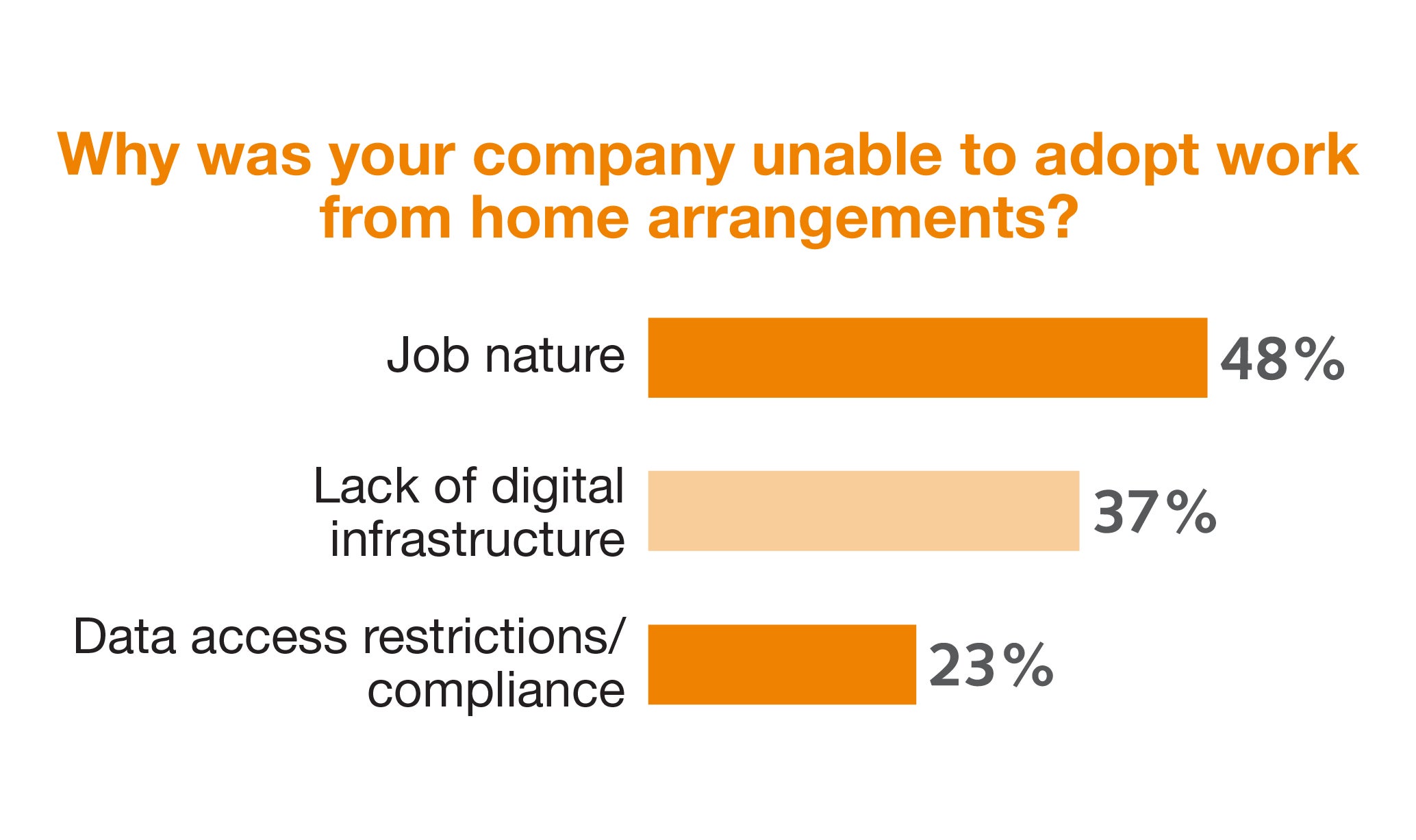Early adopters of COVID-19 countermeasures had twice as many employees satisfied with employers’ response
57% adopted beginning of March or earlier; 17% no arrangements even a few days after emergency declaration
On April 22, specialist professional recruitment firm Robert Walters Japan announced the survey results on special work arrangements adopted to prevent the spread of the coronavirus infection in Japan.
A total of 712 active employees between the ages of 20 to 60, working in domestic and foreign-affiliated companies in Japan participated in the survey. The survey was conducted for ten days starting from April 1st— around the time the emergency declaration in Japan became a topic of discussion.
17% did not adopt special work arrangements even a few days after the emergency declaration
When asked if the companies they currently work for adopted special work arrangements such as working from home or sliding hours as a preventive measure against the coronavirus outbreak, 83% answered “yes.” By April 10th, when the survey was completed, 17% of respondents responded that “there was no introduction of special work arrangements.” 57% said arrangements were adopted from “late February/early March,” 20% answered “mid-March,” 18% answered “late March,” and 5% answered “other.”
Reasons why telecommuting was not encouraged: “job nature” ranked 1st, “digital infrastructure” ranked 2nd and “compliance” ranked 3rd
When asked “What factors hindered the ability to work from home?” 48% responded that “the job nature requires duties to be completed in the workplace.” 37% answered “insufficient digital infrastructure” and 23% answered “restrictions on accessing sensitive and personal data due to compliance.”
Due to these reasons, 89% of the companies that introduced special work arrangements were “working from home” and 56% implemented “sliding hours” while 13% of the companies reduced working hours or working days.
Early adoption results in increased employee engagement
When asked if they were satisfied with the measures that their employer adopted to prevent coronavirus infection, 21% answered “very satisfied” and 50% answered “satisfied.” Overall, about 30% expressed dissatisfaction, with 19% responding they were “dissatisfied,” and 10% responding they were “very dissatisfied.” In addition, 32% working at companies that introduced work from home or sliding hours “before the beginning of March” answered that they were “very satisfied.” However, only 15% of employees working at companies that introduced measures after “mid-March” (when the number of infected people in the Tokyo metropolitan area, Kansai, Hokkaido, etc. exceeded three digits) said they were “very satisfied.” These results suggest that the timing of introducing preventative measures has an impact on employee engagement.
(Survey period: April 1st to April 10th, 2020, Target: Company employees registered with Robert Walters Japan and living in Japan n=712)
To request further information, please contact PR executive on 03-4570-1500 or info@robertwalters.co.jp
Related content
View AllTOKYO, JAPAN - Specialist recruitment firm Robert Walters Japan unveils key insights into the experiences and expectations of LGBTQ+ individuals, diversity and inclusivity in the Japanese workplace through its latest survey*. The Importance of Diversity and Inclusivity The survey asked respondents t
Read MoreTOKYO - Specialist professional recruitment firm Robert Walters announced trends in the hiring of foreign national candidates on April 10. In recent years, as the domestic workforce has been shrinking, companies have been focusing on boosting diversity in their hiring process. In this release, we ta
Read MoreOSAKA - Specialist professional recruitment firm Robert Walters Japan is pleased to announce the relocation of its Osaka office to Northgate Building Office Tower, next to JR Osaka station, from 1 April 2024. The Osaka office is a key hub serving clients and candidates in central and western Japan s
Read More


